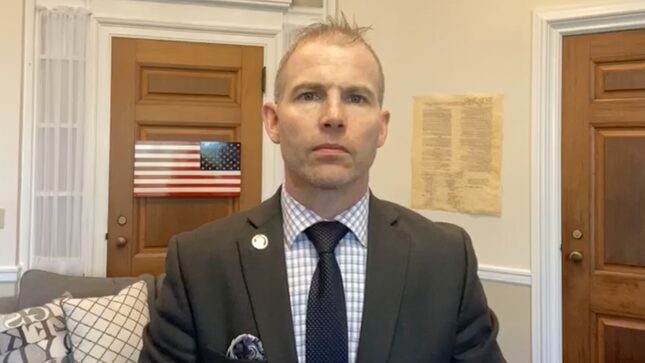Missouri Rejects Rape Exceptions, Senator Says Forced Birth Can Be ‘the Greatest Healing Agent’
Missouri was the first state in the nation to ban abortion and seemingly remains determined to be as cruel as possible.
AbortionPolitics

In 2022, Missouri was the first state to ban abortion when Roe v. Wade was overturned, and anti-abortion lawmakers in the state are continuing their streak of cruelty. On Wednesday, across party lines, Republicans rejected an amendment that would have added rape and incest exceptions to the state’s total ban. Democratic state Sen. Tracy McCreery proposed the amendment by pleading with her colleagues to “show an ounce of compassion” for victims. As it currently exists, McCreery said the ban tells victims, “We’re going to force you to give birth, even if that pregnancy resulted from forcible rape by a family member, a date, an ex-husband or a stranger.”
As if voting to reject McCreery’s amendment weren’t insulting enough to victims, state Sen. Rick Brattin (R) explained his vote by arguing that being forced to carry their rapist’s baby could be “healing” for victims. “If you want to go after the rapist, let’s give him the death penalty. Absolutely, let’s do it,” Brattin said. “But not the innocent person caught in-between that, by God’s grace, may even be the greatest healing agent you need in which to recover from such an atrocity.” Seemingly trying to make his comments as horrific as possible, Brattin also managed to compare abortion to slavery.
-

-

-

-

-

-

-

-

-

-

-

-

-

-

-

-

-

-

-

-

-

-

-

-

-

-

-

-

-

-

-

-

-

-

-

-

-

-

-

-








































